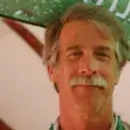
John Michael O'Shea
Professor John O'Shea is a Professor of Anthropology and Curator of Great Lakes Archaeology in the Museum of Anthropology at the University of Michigan, Ann Arbor. He is a leading expert on prehistoric societies in transition from egalitarian to hierarchical organization. His research focuses on the operation of tribal social systems in the absence of more complexly organized societies and he has pioneered methods of reconstructing social and economic organization through the study of funerary practices, which uses differences in burial treatment and grave goods to reconstruct social categories. Professor O' Shea Applied such analysis to groups as diverse as the Pawnee, Omaha, and Arikara of North America and the Bronze Age societies of Hungary, Romania, and Serbia. His research combines archaeology, ethnography, and ethnohistory and his publications include Mortuary Variability (1984), on the social analysis of cemeteries; Bad Year Economics: Cultural Responses to Risk and Uncertainty (edited with Paul Halstead, 1989), which provides models that systematize the differing ways both simple and complex societies cope with risk; Archaeology and Ethnohistory of the Omaha Indians (with John Ludwickson, 1992), which integrates evidence from ethnology, archaeology, and ethnohistory to document the history of that people; and Villagers of the Maros (1996), a detailed cultural portrait of Early Bronze Age society in Hungary. Recently, Professor O'Shea has become involved in underwater archaeology, considering the systematics of nineteenth-century shipwreck sites and the exploration of inundated hunting sites dating to the Early Holocene.